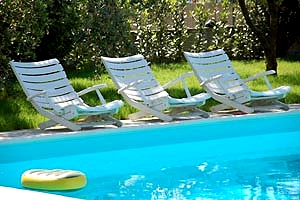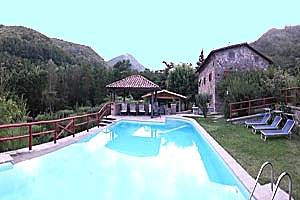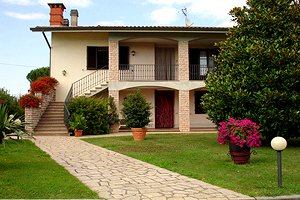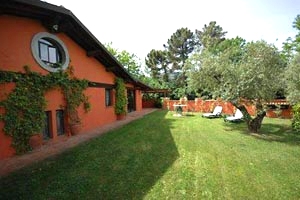



Teatro del Giglio

The neoclassic façade with its triangular-shaped pediment is decorated with bas-reliefs showing musical motifs, while the original decorations of the interior are considered attributable to the Florentine Catani. The Giglio is a clear example of the Italian-style theatre, with its typical hive-shaped construction of four tiers of boxes one above the other, three of which being original. Among these the Royal Box stands out, used by visiting princes and dukes and the royal family. The pit is spacious and welcoming whilst the gallery, with its balconies of slender plaster columns decorated in gold, frames the upper part of the theatre. There is an imposing chandelier in the centre which signals the beginning of each act as the intensity of its light is gradually lowered.
Since its first great success with William Tell in 1831, directed by Niccolò Paganini, the Giglio theatre has attracted numerous and prestigious artists and has presented Opera seasons of great standing, making it among the most prestigious theatres rivalling the Scala of Milan or the San Carlo of Naples, so much so that in 1985 it received recognition as a Theatre of Tradition.
Only once, in 1878, the great Lucchese composer Giacomo Puccini, still a student, played on the stage of the Giglio theatre when he accompanied on the piano a promising young opera singer, and received favourable reviews. His works, on the other hand, were almost all performed beginning with Edgard in 1891, with enormous success and great public participation. What is more, a bas-relief by Francesco Petroni which immortalises the first performance of the "Fanciulla del West" in the September of 1911 can be admired in the theatre.
The theatre now offers an opera season in the autumn from September to December, one dedicated to prose from November to May as well as initiatives of high standing with regard to both symphonic and modem music (April - June), whilst an interesting programme of youth theatre is offered from February to May.
Recently the library has been re-opened along with the Documentary Centre for information, the consulting and borrowing of books, magazines and audio-visual material of great interest. ... from "Lucca" (Apt Lucca)
Our most requested holiday homes:
 Villa with swimming pool near Lucca, a few kilometres from the beaches of Versilia. 12/13 sleeping accommodations, garden, hydromassage. Tennis courts and riding stable in the vicinity.
More details
Villa with swimming pool near Lucca, a few kilometres from the beaches of Versilia. 12/13 sleeping accommodations, garden, hydromassage. Tennis courts and riding stable in the vicinity.
More details
 Holiday Tuscany villa with swimming pool in Castelnuovo in Garfagnana, near Lucca. 8 sleeping accommodations, satellite TV, barbecue, Internet connection.
More details
Holiday Tuscany villa with swimming pool in Castelnuovo in Garfagnana, near Lucca. 8 sleeping accommodations, satellite TV, barbecue, Internet connection.
More details
 Villa with swimming pool in Montecarlo, in the plain of Lucca. 6 sleeping accommodations, garden, children playground, Internet connection, barbecue.
More details
Villa with swimming pool in Montecarlo, in the plain of Lucca. 6 sleeping accommodations, garden, children playground, Internet connection, barbecue.
More details
 Nice independent villa near the beaches of Forte dei Marmi and Viareggio, in Versilia. Sleeps 10, wide park, swimming pool, Internet connection. Massages and beauty treatments upon request.
More details
Nice independent villa near the beaches of Forte dei Marmi and Viareggio, in Versilia. Sleeps 10, wide park, swimming pool, Internet connection. Massages and beauty treatments upon request.
More details






